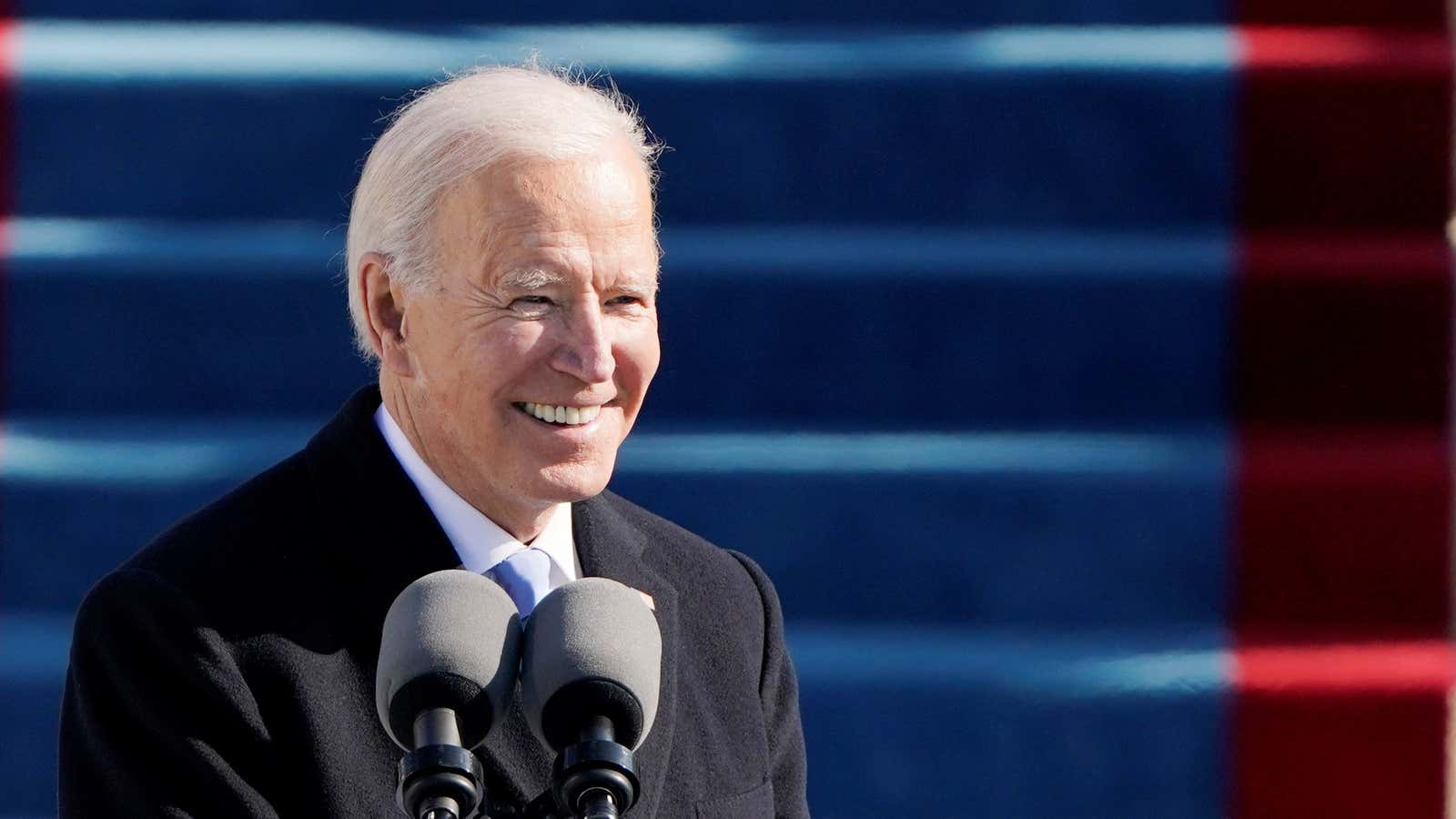Since his election, Joe Biden has been good news for investors.
Between election day on Nov. 3 and today, the S&P 500 index has climbed 14.3%. The gain is the best between election and inauguration day for any first-term president since World War II, according to a report by CFRA Research, an investment research firm in New York.
After an initial surge following the election, the market cooled slightly. There were lower expectations due to concerns about the availability of Covid-19 vaccines and new coronavirus-related restrictions in several states. By early January, investors had already factored in the distribution of the vaccines and the likelihood the Biden administration would raise taxes on corporations, both which would affect expenses and earning expectations for 2021. And president Donald Trump was still a major source of uncertainty.
“There was real concern about what he could do and if he wouldn’t leave,” said Hilary Kramer, chief investment officer for Kramer Capital Research based in New York. Then on Jan. 6, Democrats won both of Georgia’s seats in the Senate, Trump supporters attacked the US Capitol building, and several Republicans spoke out against the Republican president, reducing investors’ concerns that Trump would continue to disrupt the transfer of power. “In an ironic way, Jan. 6 and the rioting at the Capitol really changed things; and the market took off,” Kramer said.
Biden’s effect on the stock market so far could augur well for investors in the months to come. Data show on average, the S&P 500 rises 2.1% during the first 100 days of a first-term Democratic president’s time in office compared to the same period for a Republican administration serving its first term, according to CFRA.
Still, a market decline this year is all but certain, and it could happen soon. During most years since World War II, the index has fallen to a point below where it began the year. More than half of these losses occurred in the first quarter of the year, according to Sam Stovall, the chief investment strategist at CFRA.
